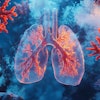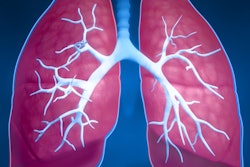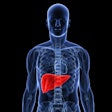Dear Artificial Intelligence Insider,
Researchers and companies around the world are exploring the use of artificial intelligence (AI) to help in the fight against COVID-19. For example, a team from the University of Hong Kong has developed deep-learning models to detect the disease on chest x-rays.
Based on concepts commonly employed in economics and meteorology, the researchers' latest "nowcasting" deep-learning model outperformed experienced radiologists and yielded particularly strong results in patients who were asymptomatic or were showing early symptoms, according to this edition's Insider Exclusive.
AI is also showing promise as a tool for predicting if a patient with COVID-19 will likely need a ventilator. In addition, two different teams of Chinese researchers have reported that AI analysis of chest CT can help clinicians to distinguish COVID-19 from other pneumonias. Another multicenter group in China has shared strong results from its deep-learning model.
What's more, an AI algorithm created to diagnose pneumonia on chest x-rays was deemed useful for detecting and monitoring COVID-19. Canadian researchers are also developing an open-source AI algorithm for detecting the disease on chest x-rays. Furthermore, an algorithm was shown to be highly accurate for identifying COVID-19 on CT, as well as quantifying and tracking the disease burden.
On the downside, another study concluded that adding CT findings didn't improve the performance of an AI model for predicting the severity of COVID-19. Also, the pandemic is likely to have an adverse effect on imaging volume, cancer treatment, and research going forward, according to a recent series of reports.
It's been said that teamwork can make the dream work. And that was certainly the case for the RSNA, which, thanks to a collaboration with the American Society of Neuroradiology and 60 volunteer neuroradiologists, was able to achieve its goal of producing a new large and diverse dataset for its 2019 Artificial Intelligence Challenge.
AI algorithms have also been recently found to aid in the classification of indeterminate lung nodules spotted on CT, enhance lesion assessment on breast ultrasound, and speed up measurements of leg length discrepancy on pediatric radiographs.
In addition, AI models can rapidly predict 3D dose distributions for online MRI-guided radiation therapy plans, enabling fast optimization and quality assessment of these treatments, according to recent research. Deep-learning algorithms can also predict the need for a total knee replacement based on analysis of 3D MRI as well as clinical and demographic information.
Another study found that AI can accurately reconstruct 4D flow MRI exams in seconds, potentially enabling near-real-time assessment of cardiac blood flow while the patient is still in the scanner.
Researchers have also concluded that an AI-based system can achieve comparable performance to academic neuroradiologists in diagnosing 19 common and rare diseases on brain MRI. Radiomics features in the hippocampus on MRI scans may also serve as biomarkers for predicting if patients will progress from mild cognitive impairment to Alzheimer's disease.
Do you have an idea for a story you'd like to see covered in the Artificial Intelligence Community? Please feel free to drop me a line.




















